This is the second in my Action Trilogy for Freedom. The first can be reviewed here. I will publish the third after my national ZOOM conference next Tuesday at 7 pm Eastern time. This weekend a link will be sent out to CORAC members who may want to participate in the meeting. If you are not yet a member, you can sign up here. Better get cracking though: time’s a-wasting! The meeting will be recorded and made available to CORAC members.
*********
Two-hundred-fifty years ago discontent with European forms of government was simmering in the American colonies. Though the discontent was most specifically directed at England it was, in some ways, ironic as England was probably the most liberal of the European autocracies and constitutional monarchies. But it was England that governed America, so the English were the focus of the colonists’ ire.
Understand that, in classical terms, “liberal” meant those who stood for individual rights and decentralization of state power, while “conservative” meant those who supported centralized and comprehensive state authority. Yet another example of the left bowdlerizing our language to fool people. I am a classical liberal which, in modern times, is called a conservative. Over the course of some decades liberalism became the dominant philosophical political force. So naturally, classical conservatives who supported centralized state power co-opted the term without changing their beliefs. The great philosopher, John Stuart Mill, once observed that conservatives are not necessarily stupid, but that most stupid people are conservative. Leftists LOVE to use that quote, completely unaware that, at the time he said it, “conservatives” believed, like them, in the supremacy of the state – unintentionally proving his point. But I digress.
Deep thinkers among the American colonists were disgusted with the abuses of absolute monarchs and centralized governments entirely. They sought to create a new form of government by the consent of the governed with the people, collectively, as sovereign. Their visceral loathing of centralized state power led them, initially, to erect a national government that was so feeble it could not effectively provide even for the common defense (Articles of Confederation). In 1787 they convened the Constitutional Convention, determined to found a system that was built on popular sovereignty, protected individual rights (as defined by natural law), was stable, and gave the central government just enough authority to carry out its legitimate duties but toothless enough that it could not become a tool of oppression.
First, they divided central power up into three categories; executive, legislative and judicial figuring that if they had to compete internally with each other, it would keep them busy enough to make it hard for them to become an oppressive leviathan. Then they limited the federal government to those few powers specifically enumerated in the Constitution, reserving the bulk of governmental power to the states. Then, since they had given the states wide latitude in making laws, they specifically wrote the Bill of Rights to prevent states from encroaching on individual liberty – and to protect against the tyrannical drift that had historically plagued and destroyed democracies (the tyranny of the majority).
They accomplished this by first setting up a blended system of a democracy and a republic. By forming a bicameral legislature in which members of the House were directly elected by the people in each district, they set up a citizen legislature that would respond to popular passions. It was, in essence, the gas pedal of government. Then they set up a Senate whose members would be chosen by the states, both in recognition that the country was actually a federation of states, each of which had great power, and as the brakes on government – to prevent popular passions from careening out of control. This provided the system with the capacity for novel initiative while preserving social stability. Members of the House, chosen for short two-year terms directly from the people, were originally envisioned to be citizen legislators who would serve for a few terms and then get back to their real jobs. Members of the Senate were called to be the professional class of legislators, with the best and most thoughtful to be chosen by the states for long six-year terms. This balanced republican and democratic imperatives (I’m speaking philosophically here, not in recent partisan terms.)
The Bill of Rights was added to explicitly keep an overweening federal or state government from encroaching on individual rights by removing certain areas of life entirely from the jurisdiction of the government.
The First Amendment which protected the natural rights of speech, religion, the press, assembly and petitioning the government was a mother lode.
First was Freedom of Speech. After millennia of being subject to governments that pretended to know and decree what truth is, the Americans decided that truth will stand the test of examination. No matter what level of authority or expertise any person or institution claimed, they still must submit their thesis to the open public square. Whoever was most convincing prevailed. If they were wrong, time would tell and dissenters would grow stronger and, ultimately, prevail. The key was preserving the open square in order to prevent anyone from ever imposing their will. If you were not willing to stand the test of examination you were dismissed as too stupid or venal to be listened to and given a fair hearing.
Next was Freedom of Religion. This amendment has been utterly turned on its head, understood by most as meaning the exact opposite of what it actually was written to mean. At the time of its writing, several states HAD established religions. Those states were the most vociferous in insisting upon the inclusion of this passage. It did NOT establish separation of Church and State; rather, it barred the federal government from ever having any jurisdiction at all over religion (except to bar a religious test for holding office). All jurisdiction over matters of religion was reserved to the individual states.
The right of Freedom of Assembly protected people’s right to form voluntary associations without governmental interference. Of course, there was no IRS or FBI at that time to hammer conservative organizations. Freedom of Petition guaranteed the right of people to lobby their legislators. Lobbying has a terrible name now, as it should. But it was intended to be a positive good at the founding because the founders had set up a government so limited in powers that it could only be for the public good that people would lobby. No one, at that time, expected that government would set itself up to determine who the economic and social winners and losers would be.
The Second Amendment guaranteed all citizens the right to bear arms in common usage. Moderns might wonder how the government protected citizens from violence. It was simple: since the people were sovereign and the government their servant, law-abiding citizens had the absolute right to firearms for personal use and as a firewall against overweening government. The people decided how much firepower government was allowed rather than vice versa. To protect citizens from violence, state governments focused on crime control, not gun control. Today we have the opposite: the government wants to control the peoples’ right to bear arms while releasing violent criminals without bail, a policy so absurd no founder could imagine that any serious person would ever propose such a thing.
The Fourth through Eighth Amendments established the contours of an honest and just legal system. They guaranteed due process under an adversarial system where the accused was guaranteed to be able to present his evidence and get his say (ask the J6 defendants and Donald Trump how that is going). They guaranteed a speedy trial without excessive bail (again, ask the political J6 prisoners, held without bail or even charges for almost two years how that is working out. Charges, when they actually are mounted, are generally for trespassing or parading). These amendments protected citizens from unreasonable search and seizure (ask all the Trump associates who have had their phones and papers seized without explanation and often without warrants these last few weeks about that one).
The Tenth Amendment barred the federal government from exercising any power or authority that was not specifically granted by the Constitution. All other powers were retained by the states and the people. The federal government, in most things, was envisioned to be a glorified clerk – a sort of butler to the states and the people. The primary exceptions were that the federal government had the sole power to wage war, print money, and adjudicate disputes between the states. Now, of course, the federal behemoth treats states as branch offices to carry out its dictates.
This was a very different type of government than any that had ever been tried before. In all other types of government the central question was who would rule and who would have a say in that rule. It literally had been, before America, a quest for the ring of power. The Americans intentionally vested sovereignty in the whole people, dividing and sub-dividing power to protect themselves from ambitious officials and bureaucrats.
Americans intentionally based their political theory on natural law, that rights were bequeathed by God and that no government had any authority over those rights whatsoever, only the obligation to defend them. Former Pres. Barack Obama argued that it was a mistake to focus on “negative rights” (what government is NOT allowed to interfere with) rather than “positive rights” (what government MUST do for you). The founders were far wiser than Obama. They knew that government can do nothing for you without assuming some measure of authority and coercion over you. Government cannot give to anyone without first taking from someone else. The whole point of America’s founding was to protect people from the tender mercies of a government that had power to dominate and coerce them.
Though many American founders were deists (they believed in a divine supreme power but were unconvinced that He was intimately involved in human affairs after having gotten things started) the American system assumed the existence of a just God. In fact, the American Revolution was the hybrid flowering of the Enlightenment and Faith – focused on the rights (free will) of the citizenry with confidence that in a system based on persuasion rather than coercion, in which government was not allowed to issue arbitrary dictates, both the people and the polis will flourish. Thirteen years after the American Revolution came the French Revolution, the noxious flower of the Enlightenment fully divorced from Faith. It turned out to be just a new variant of the old quest for power, to simply decide who rules without reference to any actual rights of man.
European authoritarians and tyrants expected the American experiment to collapse quickly into chaos. After all, what an absurd idea that the common people can both take care of and govern themselves better than self-anointed rulers can! After about 50 years, the authoritarians and tyrants of Europe were shaken, for the American system not only worked; it worked far better than any system they had ever devised to promote opportunity and human happiness. (Alexis de Tocqueville’s early 19th century tome, Democracy in America, is still the best explication of the philosophical underpinnings of the American system and why it worked.) It worked so well that it started to spread throughout the world, becoming the preferred system for those not under the thumb of tyrants – and often the spark that overthrew those tyrants.
Alas, early in the last century, Pres. Woodrow Wilson made no secret of his contempt for the Constitution and his conviction that America should be ruled by “experts.” Thus began the slow overthrow of the American system, progressively replaced by those who dreamed of ruling and who agreed with the crowned heads of 17th century Europe that it was absurd to entrust governance and rights to common people, even though that system had worked so brilliantly.
In Ernest Hemingway’s 1926 novel, The Sun Also Rises, a character is asked how he went bankrupt. “Two ways,” the character replies, “Gradually then suddenly.” After a century of “gradually,” we have reached the “suddenly” stage of the overthrow of the American system. We are on the precipice of falling completely back into the old system of a ruling class and the ruled – preserving some of the trappings of American liberty under God while gutting it entirely of its substance. It is actually a war on God, Himself, for God, Himself, is the ultimate guarantor of human liberty.
Once we were heroes who threw off the chains of ambitious men who sought to rule us by decree. Now is the time when we must gather ourselves and decide whether the capacity for heroism, under God, is still within us. The fate of many generations yet unborn depends on our answer to that question now.

If communication goes out for any length of time, meet outside your local Church at 9 a.m. on Saturday mornings. Tell friends at Church now in case you can’t then. CORAC teams will be out looking for people to gather in and work with.
Find me on Gab at Charliej373 or at the CORAC group.
Find me on Twitter at @Charlie62394802
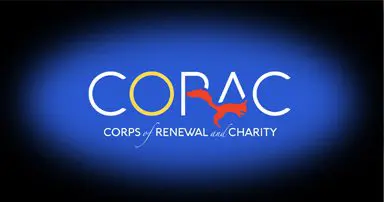

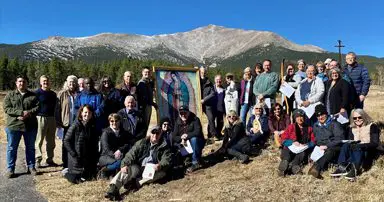
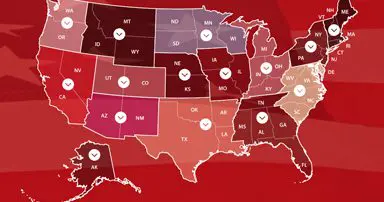



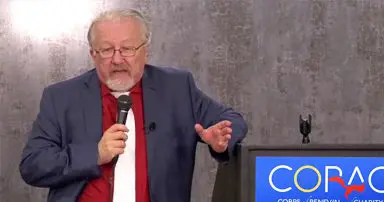












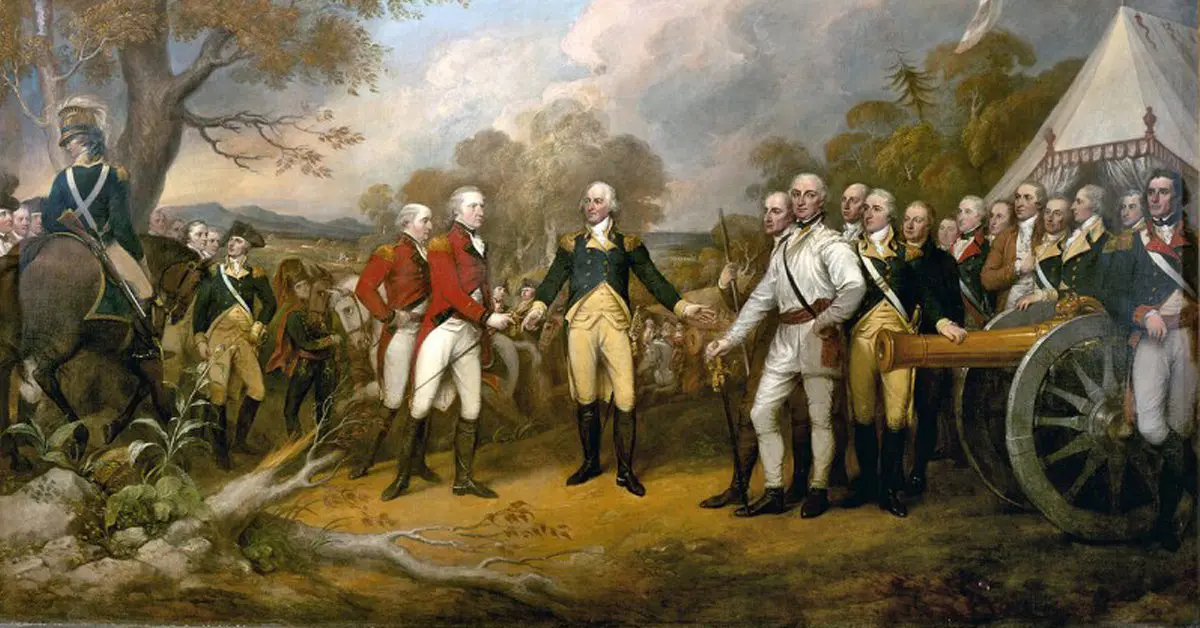



0 Comments